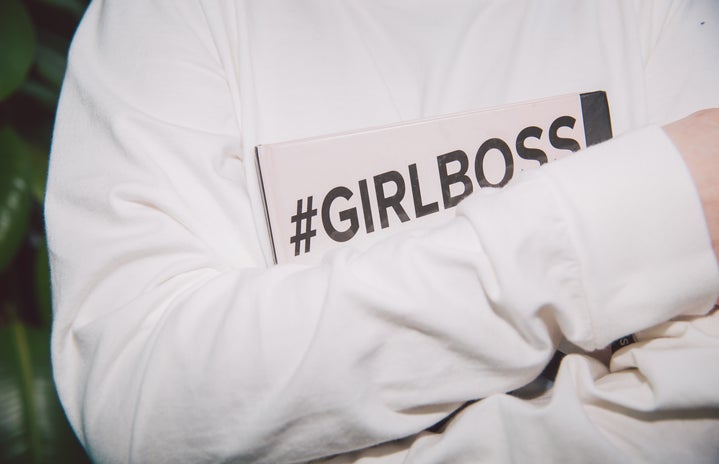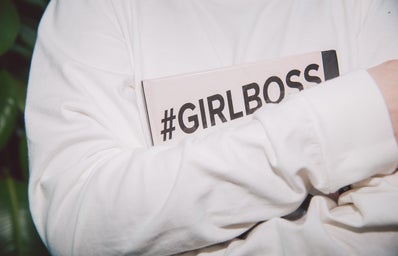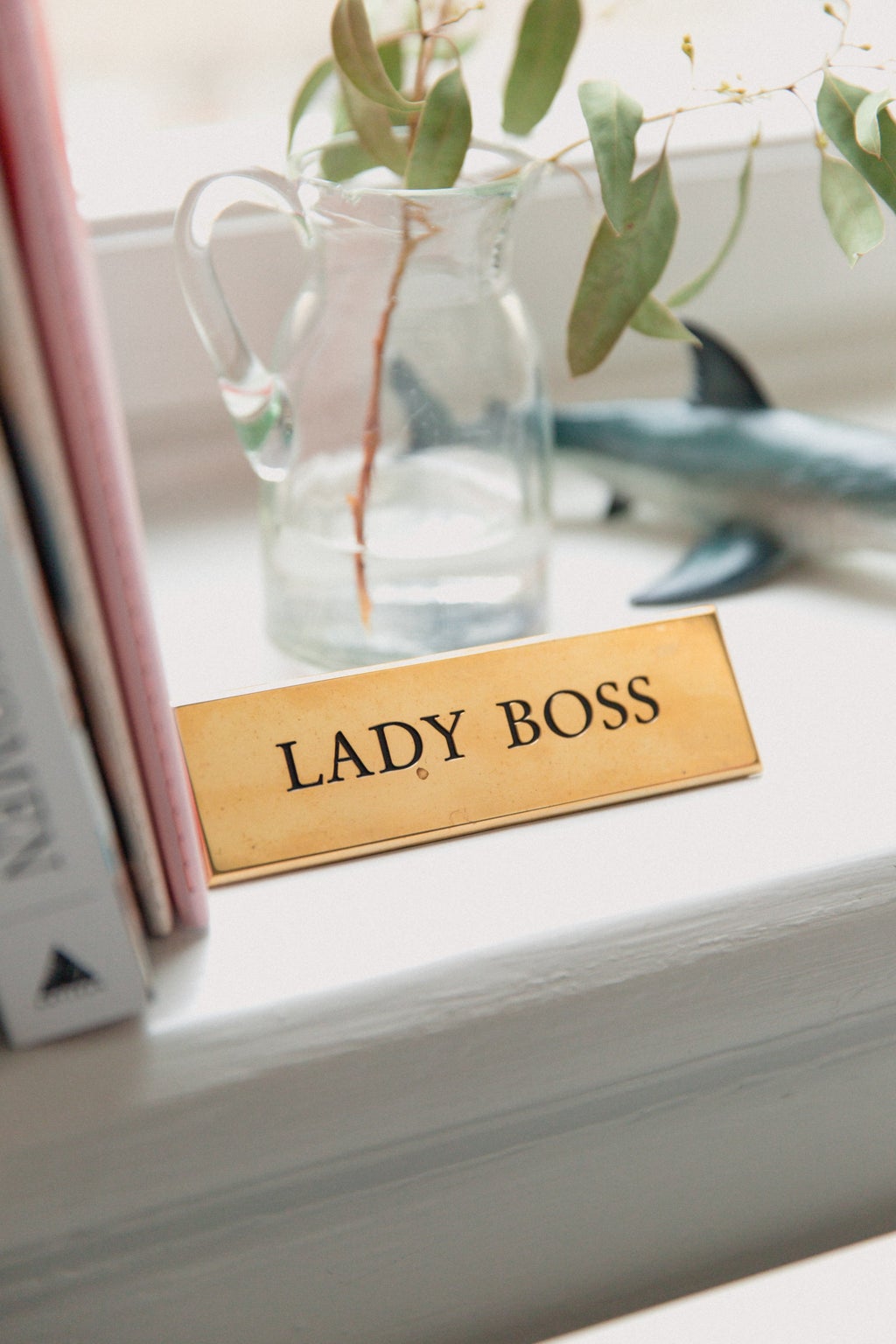“You are such a girlboss for that.”
“That is SO girlboss of you!”
“Major slay, girlboss.”
These are sentences that my girlfriends and I have said to each other hundreds of times. For us, last year was the year of the “girlboss.” At some point, the word was resurrected from the feminist propaganda graveyard and found its way into almost every conversation we had.
It’s hard to convey the nuance of how girls my age are using the word girlboss. You kind of get it or you don’t. We’re attempting to reclaim a word that’s become a mocking caricature of a successful woman and using it to once again empower ourselves. It’s a type of convoluted rebranding that I’m not sure I fully understand.
Being called a girlboss feels like just another way I’m being classified as some particular kind of woman. I’ve been the unathletic nerdy girl. I’ve been the bookish and mousy one too. And now, I’m the girlboss. Entire generations of men have convinced girls that in order to be, we have to be some kind of thing first. Something they can classify as separate from them.
Girlboss began as a moniker for women, typically white, who find success in a corporate, capitalist world. The girlboss achieved success in a way that is palatable to a patriarchal society and its norms. The original girlboss wasn’t breaking down barriers for marginalized women; instead, she found success in positions already carved out by men. She knew the password to the boy’s club.
But like I said, it’s tricky. My feelings towards the girlboss are blurry at best. I feel oddly protective of her. It’s hard enough to crack the glass ceiling, but to reinvent entire new economic systems to replace the patriarchal one that has run the world for over a century? I don’t think we should judge those women who do find a way to make it work for them too harshly.
Since the peak of the word’s popularity (it was a huge hit amongst the 2010s millennial feminist movements), the girlboss has become a joke. A trope for movies and commercials. The girlboss is coded as a try-hard. A woman who makes other female characters feel insecure. We are being taught to hate the girlboss.
The movie Shiva Baby encapsulates this phenomenon perfectly. It’s brilliance lies in its ability to demonstrate that no kind of “working woman” can win. Its protagonist, a college student named Danielle (played by Rachel Senott), is repeatedly asked about her plans for a career and whether or not her Gender Studies major is a real thing. She is repeatedly compared to Kim Beckett (Diana Agron), a white, blonde, business-owning entrepreneur who is praised for her ability to balance it all against her role as wife and mother.
Danielle and others make fun of Kim behind her back. They joke about her career and imply that her success is a facade over a much unhappier reality. When Kim offers Danielle a job, Danielle blurts out, “No, that’s so nice of your offer … I don’t really want to be, like, a girlboss type of—That’s not my thing.”
We women can’t win either way. If we try it Danielle’s way and forge our own unconventional paths, we’re not taken seriously. But if we try it the conventional, socially acceptable way, we’re a joke. Not a boss, but a girlboss. We’re not just successful, we’re successful women.
All said and done, I think the word “girlboss” hasn’t done us women very many favors. It got taken apart and put back together in such way that we either avoid it altogether or turn it into a bit. If we don’t take ourselves seriously we don’t have to worry about other people not. And most disappointingly of all, at its worst, we use girlboss divisively. “She’s a girlboss. But I’m different. I don’t do that. Make fun of her, not me.”
To answer my own question, I’m not sure if we can give girlboss back.
I don’t think it was ever ours.




